Oral Health and Aging: Maintaining a Healthy Smile for Life
Good oral health is crucial for well-being, affecting everything from our ability to eat and speak to our self-confidence and quality of life. As we age, our bodies undergo various changes that can impact our oral health, making it increasingly important to prioritize proper dental care and hygiene.
Common Oral Health Issues in Older Adults
Dry Mouth
Dry mouth is a common problem among older adults, often caused by medications or certain medical conditions. A lack of saliva can increase the risk of tooth decay, gum disease, and other oral health problems. To manage dry mouth, drinking plenty of water, using saliva substitutes, and avoiding alcohol and caffeine can help. Your dentist may also recommend adjusting your medications or prescribing a specific mouthwash or saliva-stimulating medication.
Gum Disease
Gum disease is an infection of the gums and supporting structures of the teeth. It is often caused by poor oral hygiene, allowing plaque and tartar to build up on the teeth. Smoking, diabetes, and certain medications can also increase the risk of gum disease. Early symptoms include red, swollen, or bleeding gums, but if left untreated, it can lead to tooth loss. Regular dental check-ups and cleanings are essential for preventing and managing gum disease.
Tooth Loss
Losing teeth can be a significant concern for older adults, often resulting from gum disease, tooth decay, or injury. Missing teeth can make it difficult to eat certain foods, impact speech, and affect self-confidence. Options for replacing missing teeth include dentures or dental implants, both of which can help restore function and appearance.
Oral Cancer
Oral cancer is a serious condition affecting the lips, tongue, cheeks, and other areas of the mouth. Risk factors include smoking, excessive alcohol consumption, and exposure to the human papillomavirus (HPV). Regular oral cancer screenings during dental check-ups are crucial for early detection and treatment.
Maintaining Good Oral Hygiene
Proper oral hygiene is essential for maintaining good oral health as you age. Brush your teeth twice a day with a soft-bristled toothbrush and fluoride toothpaste, taking care to clean all surfaces of your teeth. Floss daily to remove plaque and food particles from between your teeth and along the gumline. Look for toothpaste and mouthwash formulated for sensitive teeth or dry mouth, as these can be common issues for older adults. Your dentist can recommend suitable products based on your specific needs.
If you have dexterity problems or arthritis that make brushing and flossing difficult, consider using an electric toothbrush or floss holders. Your dentist or occupational therapist can suggest other adaptive devices or techniques to help you maintain good oral hygiene. A balanced diet rich in vitamins, minerals, and antioxidants can promote overall oral health. Limit sugary and acidic foods and drinks, which can contribute to tooth decay and erosion.
Seeking Professional Dental Care
Regular dental visits are crucial for maintaining good oral health as you age. Visit your dentist every six months (or as recommended) for a thorough cleaning and examination. This allows your dentist to detect and address any issues early on before they become more serious.
If you require restorative work, dentures, or dental implants, your dentist can guide you through the appropriate treatment options and ensure a comfortable, functional outcome. Consider seeking a dentist who specializes in geriatric dentistry, as they are specifically trained to address the unique oral health needs of older adults.
Maintaining a Confident Smile Through the Years
Maintaining good oral health as you age is essential for your overall well-being and quality of life. By practicing proper oral hygiene, addressing issues promptly, and seeking regular professional dental care from Executive Dentistry, you can enjoy a healthy, confident smile for years to come. Don’t hesitate to prioritize your oral health – it’s an investment in your overall wellness. Call Executive Dentistry today at (313) 914-4440 to schedule your appointment.

